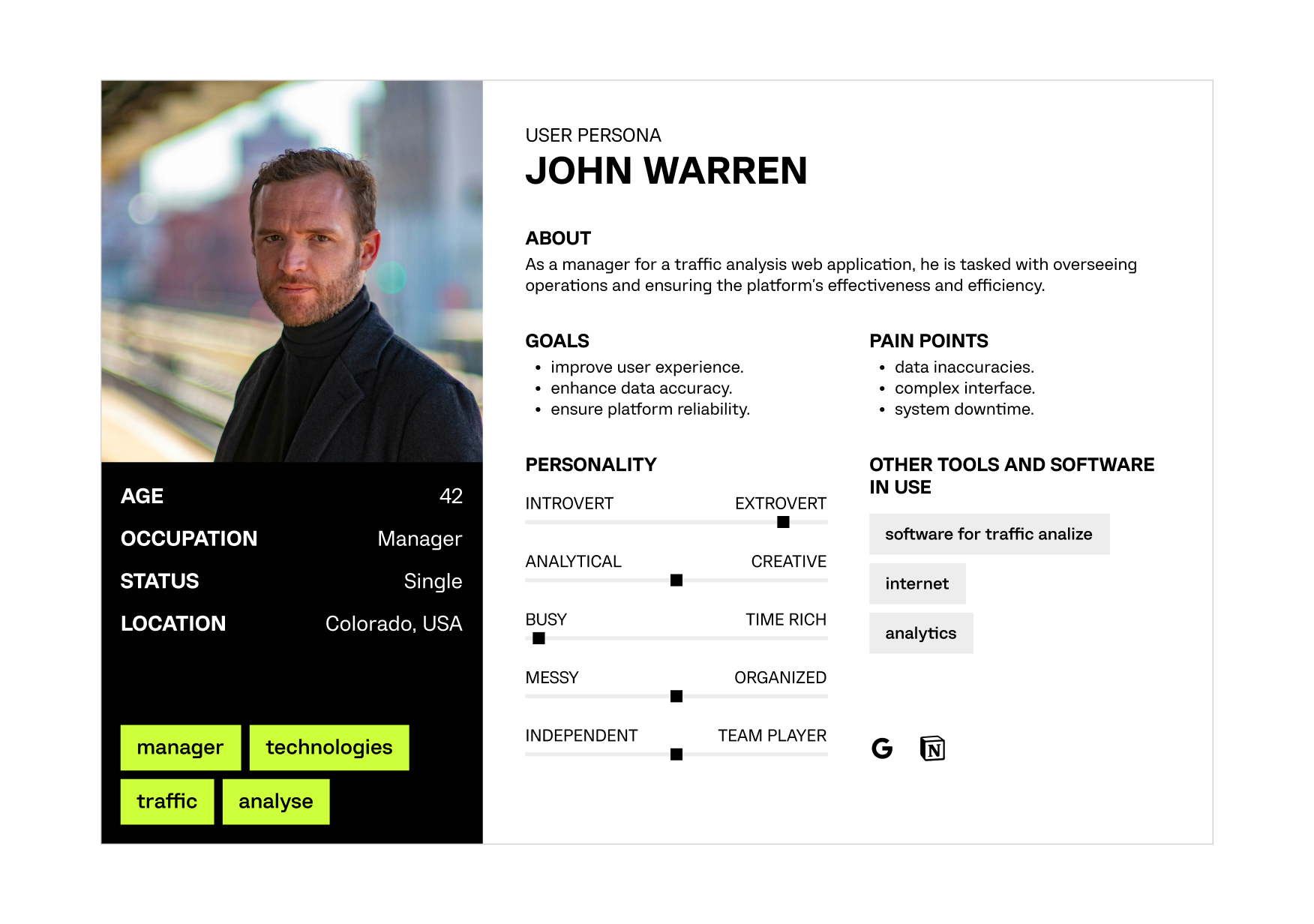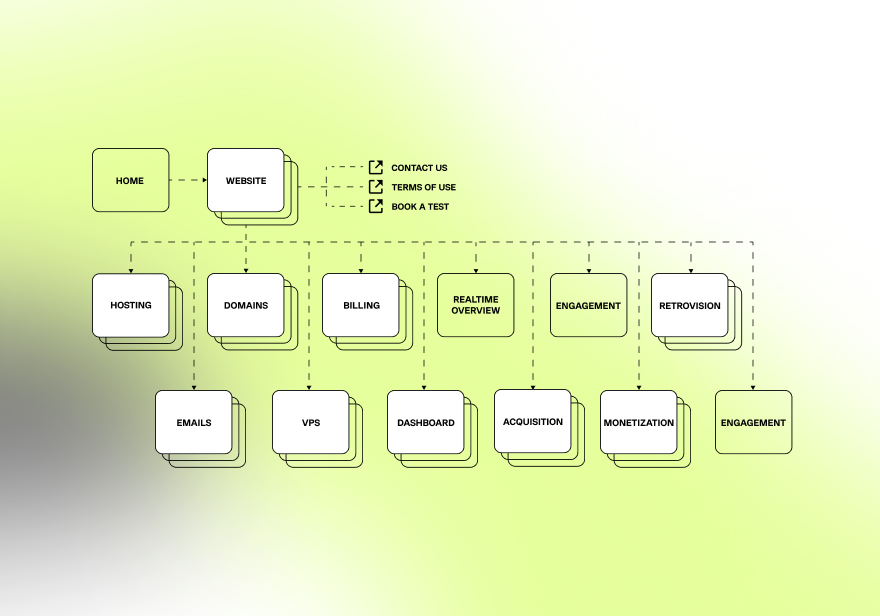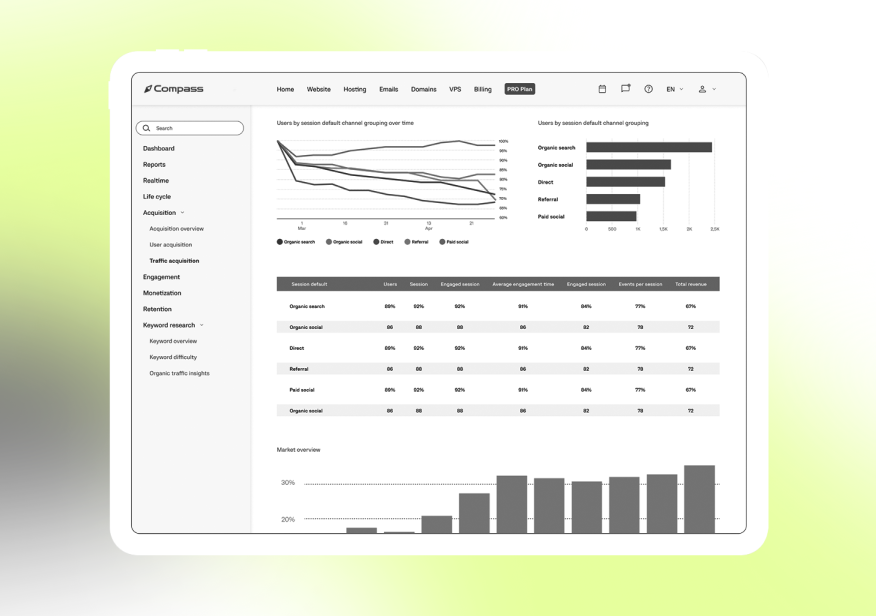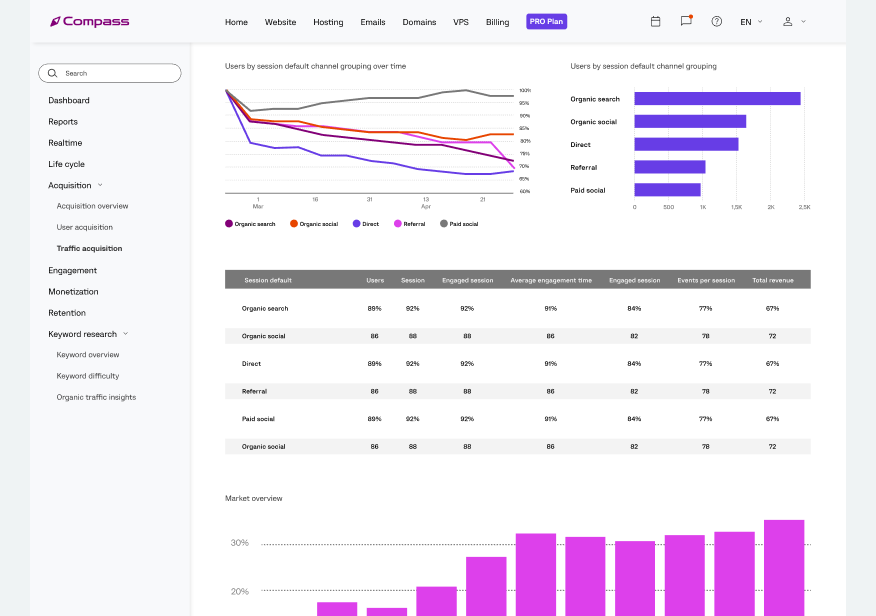Our client, Compass, developed a tool designed to intercept, analyse and structure traffic. We created a product that can analyse the network it is on and filter through various network protocols such as TCP / QUIC / etc. This product can also perform this filtering through VPN services.
Compass is a division of a Japanese company that develops and sells tools for “Web-Service-Analysis”. The company was founded in 1996, is headquartered in Tokyo, Japan and has approximately 200 employees. The platform’s customers include large Japanese companies, government agencies and multinational corporations.
The Compass business faced the limitations of existing web filtering models designed solely for HTTP connections. This limitation prevented it from adapting to current trends in diverse types of web services such as mobile apps, desktop apps, and others. Web services analysis processes required a significant amount of manual work without providing automated data collection and analysis. There was a need for technologies that could collect and analyse data in the most efficient manner.
Computools has developed a comprehensive system for Compass that automates the analysis of web services, identifies potential security threats and optimises performance. It can analyse the network it is on and filter through various network protocols such as TCP / QUIC / etc. This product can also perform this filtering through VPN services.
Computools’ solution included the development of a Backend system, automated algorithms for analysing web services, and an interface for managing and accessing data. We tested the Compass system, identifying and resolving vulnerabilities in different layers, in the server configuration, fixed process gaps and helped the client.
The implementation of advanced security measures and custom tools resulted in a notable 30% reduction in security breaches for Compass. Proactive identification and vulnerability remediation reduced incidents, providing a more secure digital environment.
Compass discovered us through a combination of factors:
Our team impressed Compass with our grasp of the challenges in web service analysis, particularly the limitations of existing models. We focused on automation, diverse protocol handling, and a security-centric approach.
The client decided they needed to expand their capabilities and were looking for a comprehensive solution to address these issues.
Before engaging Computools, Compass investigated the need for an advanced and automated approach to analysing web services.
As networking experts, we focused on developing an automated system capable of analysing different protocols, overcoming the limitations of previous models. In addition, we strengthened its security through testing. We found vulnerabilities at different levels, across server configurations, and fixed gaps in processes.
Design plays a pivotal role in crafting a seamless and intuitive solution for Compass. Each phase, from understanding user personas to the final user interface, contributes to a cohesive and user-centric design.

Understanding the diverse user personas involved in web service analysis ensures that the final solution caters to the specific needs and preferences of each user type.

Creating a comprehensive site map involves strategically organizing the components of the network analysis system, ensuring a logical flow and easy navigation for users.

Developing wireframes allows for the conceptualization and visualization of the system's layout, focusing on the arrangement of key elements.

The user interface design aims to deliver an intuitive and visually appealing experience, promoting user engagement and efficient interaction with the web service analysis system.
Python
Renowned for its simplicity and readability, Python served as the primary language, ensuring streamlined backend development and easy integration with various libraries.
Django
With its robust security features and scalability, Django provided a structured framework for efficient backend development, aligning perfectly with the project's requirements.
Wireshark
As an industry-standard tool, Wireshark was instrumental in detailed network protocol analysis, allowing the system to comprehensively handle diverse protocols beyond HTTP connections.
JavaScript
Leveraged for its versatility, JavaScript played a crucial role in developing dynamic and responsive user interfaces for the web service analysis system.
React
Chosen for its modular architecture, React facilitated the creation of an interactive and user-friendly web service analysis system.
PostgreSQL
Selected for its reliability and compatibility with Django, PostgreSQL provided a robust foundation for managing the project's database efficiently.
Redis
Used for caching and optimizing database queries, Redis complemented PostgreSQL, contributing to enhanced system performance.
For this project, a Hybrid Agile approach was adopted, combining elements of Scrum and Kanban methodologies to strike a balance between flexibility and structured planning.
Elements from Scrum, such as sprints and regular sprint reviews, provided a structured framework to manage tasks and set achievable goals within a specific timeframe. Kanban’s focus on continuous improvement allowed for adjustments based on real-time feedback during each phase of development. Utilizing Kanban boards facilitated efficient task management, providing a visual representation of work progress and bottlenecks.


Cooperation with Computools has been incredibly pleasant and productive. We have received an innovative and reliable solution that has significantly improved the security of our web services. The security of web services is a key issue for us, so we carefully selected a partner. Computools immediately impressed us with its deep understanding of market needs and innovative approach to problem-solving. We can confidently recommend Computools as a competent and responsible partner!